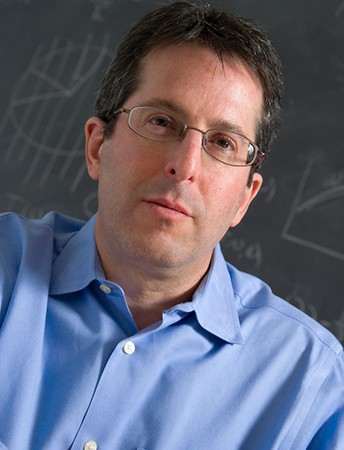- Name
- Kait Howard
- kehoward@jhu.edu
- Cell phone
- 443-301-7993
Johns Hopkins University theoretical physicist Marc Kamionkowski is one of three physicists to be awarded the 2021 Gruber Cosmology Prize for their contributions to methods essential for studying the early universe.
The prize recognizes Kamionkowski's discovery of a mathematical means to use radiation from the cosmic microwave background—a relic of the earliest days of the universe—to glean information about what happened as far back as the first fraction of a second of the universe's existence. The method involves measuring polarization, or the degree to which an oscillating wave, bouncing up and down relative to the direction of travel, diverges from a strictly perpendicular orientation.

Kamionkowski, a professor in the Department of Physics and Astronomy in the Krieger School of Arts and Sciences, shares the prize and the accompanying $500,000 award with physicists Uroš Seljak and Matias Zaldarriaga, who independently but simultaneously devised a similar method. The two papers appeared side by side in Physical Review Letters in 1997 (Kamionkowski shared authorship with Albert Stebbins and Arthur Kosowsky).
"It's a huge honor," said Kamionkowski. "My co-winners are phenomenal scientists, so it's great to be recognized alongside them."
The Gruber Foundation called the impact of the discovery "seismic, with enduring reverberations."
"By observing polarization in the CMB, cosmologists can match theoretical predictions of early‐universe properties using data that would otherwise be inaccessible," the foundation's announcement stated. Polarization in the CMB has "allowed cosmologists to determine that the universe is 13.8 billion years old and comprises roughly 5% ordinary matter, 26% dark matter, and 69% dark energy."
Beyond recognizing the 1997 papers, the Gruber Prize also honors Kamionkowski and his fellow winners for their career-long contributions to cosmology.
With a focus on cosmology, astrophysics, and elementary-particle theory, Kamionkowski has done extensive work on dark matter and dark energy, among other topics. His 2018 paper with collaborators posited that a theoretical force called "early dark energy" could solve the long-running debate over a discrepancy between measurements of the Hubble constant, the rate at which physicists believe the universe is expanding.
Kamionkowski is the fourth Johns Hopkins physicist to win a Gruber Cosmology Prize. Previous winners include Joseph Silk (2019), Charles Bennett (2012), and Adam Riess (2007).
Posted in Science+Technology, University News
Tagged astronomy, cosmology, astrophysics, marc kamionkowski, space@hopkins








